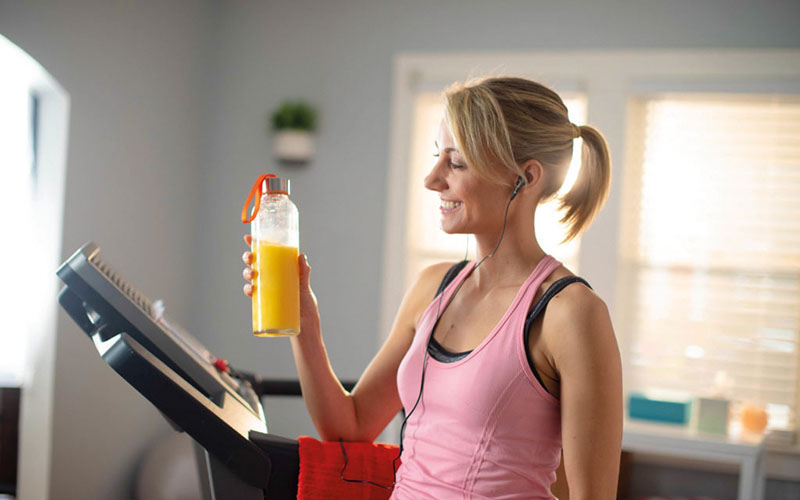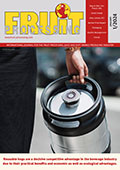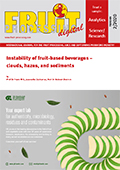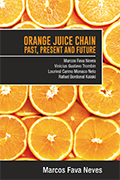New study reveals that 100 % orange juice is just as good as sports drinks and water for recovery after exercise
A new study published in the Journal of Nutrition and Health Sciences reports that drinking 100 % orange juice following exercise contributes to hydration equally as well as water and sports drinks, positioning the beverage as a viable alternative for post-exercise recovery.

A new study1 published in the Journal of Nutrition and Health Sciences reports that drinking 100 % orange juice following exercise contributes to hydration equally as well as water and sports drinks, positioning the beverage as a viable alternative for post-exercise recovery. The study, conducted by researchers at the University of Kansas and funded by the Florida Department of Citrus, found no differences between 100 % orange juice, sports drinks, or water with respect to taste preference, thirst level, hydration, or gastrointestinal distress following exercise.
Researchers conducted a five-day exercise study with 26 healthy young adults who were moderately trained for endurance exercise. Each day they cycled on a stationary bike for 80 minutes and then consumed approximately eight fluid ounces of commercially available 100 % orange juice, orange-flavored water, or an orange-flavored sports drink. Participants rated the taste of the beverages, thirst levels, and measures of gastrointestinal distress such as reflux or intestinal cramps immediately after the exercise, after drinking the beverages, and after one hour of rest. The researchers measured participants’ hydration status immediately after exercise and after a one-hour rest period.
These findings suggest that 100 % orange juice is a viable post-exercise rehydration strategy, with the beverage receiving positive palatability ratings from study participants when used as a post-exercise rehydration beverage. Additionally, 100 % orange juice was able to satisfy thirst while helping to achieve or maintain hydration following exercise without causing gastrointestinal distress.
“The study showed that people consuming 100 % orange juice were hydrated as well as the participants consuming a sports drink or water. There were no symptoms of serious GI distress with the orange juice despite the carbohydrate content and acidity of the beverage. The results indicate that people can drink orange juice to aid in their rehydration and recovery after exercise,” said Dr. Dawn Emerson, Assistant Professor at the University of Kansas and principal investigator on this study.
An eight-ounce serving of 100 % orange juice provides carbohydrates and is a good source of potassium, an electrolyte, that may provide rehydration and recovery benefits post-exercise. The naturally occurring sugar in 100 % orange juice keeps good company with these and other vitamins, minerals and the antioxidant properties that are all part of the nutrition package 100 % orange juice delivers.
According to the U.S. 2015-2020 Dietary Guidelines for Americans, one cup of 100 % orange juice counts as a fruit serving2 meaning the naturally sweet taste of 100 % orange juice can contribute to an overall healthy diet. Just one-in-ten Americans meet their daily fruit intake as recommended by the Dietary Guidelines, missing out on important nutrients.3 A glass of 100 % orange juice can help close that gap in a convenient, quick way, while also serving as a viable option for post-exercise rehydration.
1Kelly MR, Emerson DM, Landes EJ, Barnes ER, Gallagher PM (2020) Gastrointestinal Implications of Post-Exercise Orange Juice Consumption. J Nutr Health Sci 7(1): 101
2USDA/DHHS. 2015-2020 Dietary Guidelines for Americans. https://health.gov/dietaryguidelines/2015/guidelines
3CDC. Disparities in State-Specific Adult Fruit and Vegetable Consumption. 2015. https://www.cdc.gov/mmwr/volumes/66/wr/mm6645a1.htm?s_cid=mm6645a1_w









